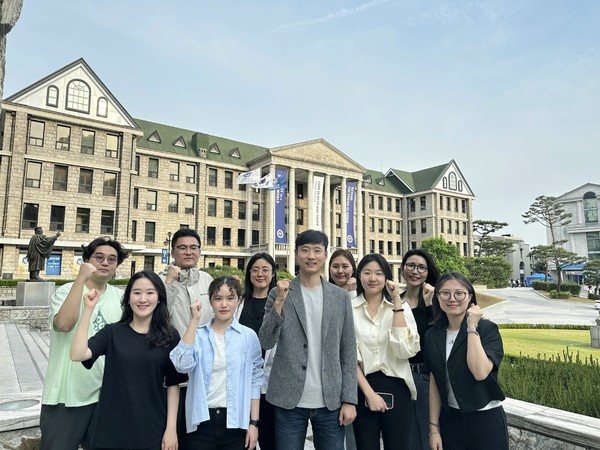Customized talent development for the marine leisure and 알파벳 토토 industry begins in earnest
알파벳 토토 to run from 2025 to 2029 with approximately 1.2 billion KRW in funding for Hanyang University

The Department of Tourism at Hanyang University’s Graduate School has been selected as a co-developing research institution in the marine leisure sector for the “2025 Ocean Bluetech Future Leaders Project,” overseen by the Ministry of Oceans and Fisheries. The project is led by Korea Maritime and Ocean University, with participation from the Korea Institute of Ocean Science and Technology, the Korea Maritime Institute, the Korea Research Institute of Ships and Ocean Engineering, and Haerang Technology and Policy Institute.
The “2025 Ocean Bluetech Future Leaders Project” is a major national R&D initiative focused on four key sectors of the emerging marine industries: ▲ eco-friendly and advanced vessels ▲ blue food and marine biotechnology ▲ marine leisure and tourism ▲ ocean space and resources. Through collaboration between universities, industry, and research institutes, the project seeks to integrate technology development with professional talent training. Running from 2025 to 2029, the project will allocate around 5 billion KRW per sector, with Hanyang University receiving approximately 1.2 billion KRW.
For this project, the Department of Tourism has set forth a vision of “training 100 global leaders in marine leisure and tourism through advanced excellence (AX).” The department aims to cultivate industry-ready professionals and spearhead global-level research in the marine tourism field. With marine leisure, tourism, and wellness industries emerging as high-value sectors, this initiative is expected to have a broad and lasting impact on South Korea’s tourism landscape.
Professor Shin Hak-seung, who leads Hanyang University’s co-development participation, stated, “By leveraging Hanyang University’s educational capabilities and industry-university cooperation networks, we aim to contribute to the sustainable growth of the marine leisure and tourism ecosystem.” He added, “Through regionally connected content development, commercialization of proof-based business models, global industry-academic-research cooperation, and internationally competitive research, we will cultivate global leaders in the marine leisure and tourism sector.”
The Department of Tourism plans to develop four new academic courses, four cooperative education programs linking universities and industry, and to train 100 master’s and doctoral-level experts, with over 70 expected to secure employment through this project. The department is set to establish itself as a central hub for talent development in the marine leisure and tourism field.

 '한양위키' 키워드 보기
'한양위키' 키워드 보기